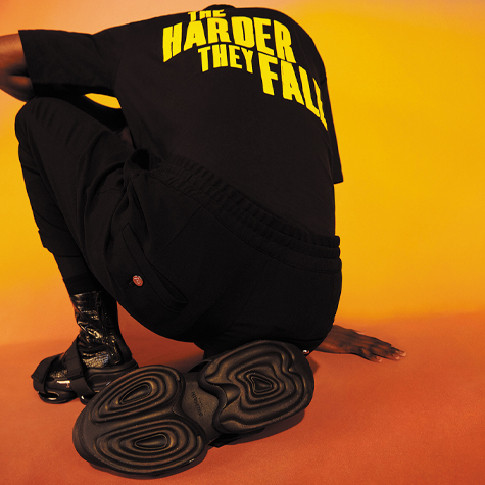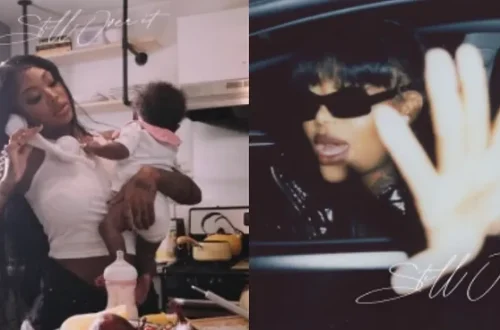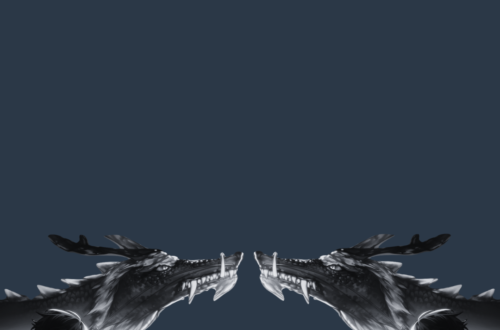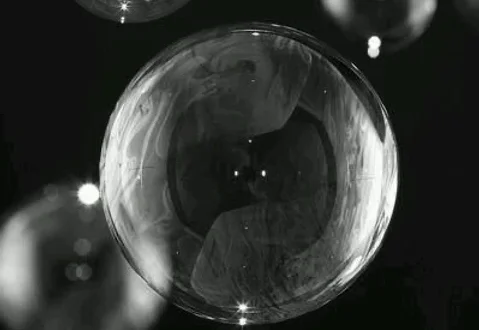
Olivier Rousteing: Young, Fashionable, and Black
Who knew that Netflix sold merchandise? During the release of their new original film The Harder They Fall (2021) following the story of Black cowboys, the streaming service partnered with fashion designer, Olivier Rousteing. The promotion follows closely on the heels of Rousteing celebrating 10 years as the creative director for Balmain–a French luxury fashion house. The Spring/Summer 22 Fashion Show—held during Paris Fashion Week—boasted a wonderful image of draped fabric, cut-outs, and a subversion of the gender normative categories for clothing. And not least of all the stunning attire was modeled by a diverse set of men and women. Rousteing has clearly not only stepped his foot in the door as one of the first and only Black heads of a major fashion house but has maintained his position at the top for over a decade. This is a feat within itself no doubt.
The 36-year-old fashion designer does not shy away from the public eye nor his goal of advocating for representation in the fashion world. He has utilized social media as an integral tool to put Balmain and his creations on the map. His version of high fashion extends beyond the elite red-carpet appearance and into the world of pop culture—for example, having Doja Cat open his 10th anniversary Paris fashion show and styling several pop artists, namely, Beyonce. He seems to lean into his racial identity in a way that feels aesthetically pleasing, culturally relevant, and admirable. So, when the campaign was launched to promote the collaboration between the fashion house and the all-Black cast film, Rousteing’s involvement did not come as much of a surprise.
Taking a deeper look into the Western-themed collection one gets an image of the American plains sprinkled with fashionable cowboys and girls. There are neutral colors of burnt orange and chocolate brown, suede, laces, denim, and lots and lots of fringe—as is expected for any western film. But what makes this collab stand out isn’t the expected bid to make the mundane something worth $4000 dollars. Balmain is personally endorsing a film that—at its core—is representing Blackness on screen through its own use of visual storytelling and aesthetic rendering. With creative minds like Jay-Z working behind the scenes, and actors such as Idris Elba, Regina King, and so on in front of the camera, Rousteing places his name and his brand alongside cultural giants in the entertainment industry.
According to Rousteing his racial identity is a big part of his life and drives his passion for advocacy and diversity within the fashion industry. In an article written by Nathan Heller in Vogue Magazine a month prior to the collab, entitled, “Liberte, Egalite, Modernite: How Olivier Rousteing Made Balmain a Revolutionary Force in Fashion” the fashion designer is uplifted as a warrior of sorts. While witnessing Rousteing’s preparation for a panel event, Heller both points out the classic feel of his attire while also relating it to “armor” for battle. The designer has certainly fought his way up to the top–despite his rough childhood and constant search for identity and acceptance. A major part of this stems from his desire to track down his birth parents and his adoption by a white couple at only 5 months of age.
The search for identity only further extends into his role in the fashion industry. He himself has admitted that there is an “obsession with perfection that fashion is known for”. The constant pressure to be at your best and to be the best is quite real, even for big name celebrities. Much of what happens in the fashion world—and even in the world of stardom—typically is meant to stay there. Yet Rousteing opens his life up to the public in ways that many other fashion heads have not—even going as far as to have a Netflix documentary made following his search for fulfillment titled Wonder Boy (2019). As he notes in the documentary “I am always unsatisfied”. He is always looking for the next thing, the next answer. And fans of the fashion designer expect nothing less, no doubt.


You May Also Like

Summer in the Winter
February 11, 2023
The Obsessive Search for Honor
June 30, 2023
